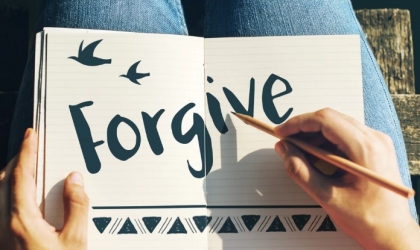The Power of Forgiveness: A Journey to Inner Peace
Forgiveness is a concept that resonates deeply within the human spirit, yet it often feels elusive and challenging to grasp. It is a profound act that holds the potential to transform lives, heal wounds, repair broken trust, and foster genuine inner peace. But what exactly is forgiveness, and how can we embrace it in our daily lives?
Understanding Forgiveness
Forgiveness is the act of letting go of resentment, anger, and the desire for revenge toward someone who has wronged us. It is not about condoning or excusing the harmful behaviour, nor is it about forgetting the pain caused. Instead, forgiveness is a conscious decision to release negative emotions and move forward with a sense of peace and closure.
The Importance of Forgiveness
Forgiveness is essential for several reasons. Firstly, it promotes emotional healing. Holding onto grudges and resentment can weigh heavily on our hearts, leading to stress, anxiety, and even physical health issues. By forgiving, we free ourselves from this burden and create space for positive emotions.
Secondly, forgiveness fosters healthier relationships. When we forgive, we open the door to reconciliation and improved communication. It allows us to rebuild trust and connection with others, creating a more supportive and loving environment.
Lastly, forgiveness contributes to our overall well-being. Studies have shown that forgiving individuals tend to experience lower levels of depression and higher levels of happiness. It is a key component of emotional resilience and personal growth.
The Challenges of Forgiveness
Despite its benefits, forgiveness is often easier said than done. The pain inflicted by others can run deep, making it difficult to let go of negative emotions. Additionally, societal and cultural influences may sometimes portray forgiveness as a sign of weakness or submission, further complicating the process.
One of the significant challenges is the misconception that forgiveness means forgetting or excusing the wrongdoing. It is crucial to understand that forgiveness is about releasing ourselves from the emotional grip of the past, not about denying the reality of what happened.
Another challenge is the fear of vulnerability. Forgiving someone can make us feel exposed and susceptible to further harm. It requires a leap of faith to trust that the act of forgiveness will lead to personal liberation rather than additional pain.
Steps to Embrace Forgiveness
While forgiveness can be challenging, it is not impossible. Here are some practical steps to help you on your journey:
1. Acknowledge Your Pain
The first step towards forgiveness is to recognise and accept your feelings of hurt and anger. It is essential to validate your emotions and understand that they are a natural response to being wronged.
2. Reflect on the Situation
Take time to reflect on the circumstances that led to the hurt. Try to understand the other person's perspective, considering their motivations and intentions. This does not excuse their behaviour but can provide valuable insights.
3. Practise Empathy
Empathy involves putting yourself in the other person's shoes. Has the person expressed a sincere apology? By listening to them or understanding their struggles and vulnerabilities, you may find it easier to cultivate compassion and forgiveness.
4. Communicate Your Feelings
If possible, have an open and honest conversation with the person who hurt you. Express your feelings calmly and assertively, without blaming or accusing. This can pave the way for mutual understanding and healing.
5. Let Go of Resentment
Holding onto anger and resentment only prolongs your suffering. Make a conscious decision to release these negative emotions. This might involve writing a letter to the person (which you may or may not send) or engaging in therapeutic activities like journaling or meditation.
6. Focus on the Present
Forgiveness is about freeing yourself from the past and living fully in the present. Redirect your energy towards positive experiences and personal growth.
7. Seek Support
Forgiveness can be a daunting journey, and it is okay to seek support from friends, family, or a therapist. Talking about your feelings and receiving guidance can provide immense relief and encouragement.
The Transformative Power of Forgiveness
Forgiveness has the power to transform not only our inner world but also our external reality. By letting go of past hurts, we create space for new opportunities and positive experiences. Forgiveness allows us to reclaim our power and take control of our emotional well-being.
Consider the story of Nelson Mandela, who, after spending 27 years in prison, chose to forgive his captors and work towards reconciliation in South Africa. His act of forgiveness not only liberated him from bitterness but also inspired a nation to heal and move forward.
Similarly, everyday acts of forgiveness, no matter how small, can lead to significant changes in our lives. Whether it is forgiving a friend for a minor transgression or letting go of a longstanding family feud, each act of forgiveness brings us closer to inner peace and happiness.
Conclusion
Forgiveness is a journey, not a destination. It is a process that requires time, patience, and self-compassion. By embracing forgiveness, we can heal our wounds, strengthen our relationships, and cultivate a deeper sense of peace and fulfillment.
As you embark on your journey of forgiveness, remember that it is a gift you give to yourself. It is an affirmation of your strength, resilience, and capacity for love. Let forgiveness be the key that unlocks the door to a brighter, more harmonious future.
In the words of Mahatma Gandhi, "The weak can never forgive. Forgiveness is the attribute of the strong." Embrace your strength, and let forgiveness transform your life.



















